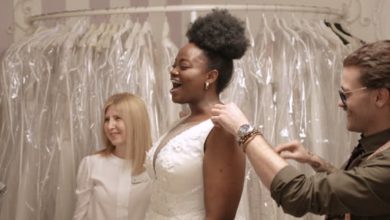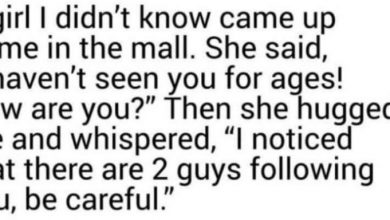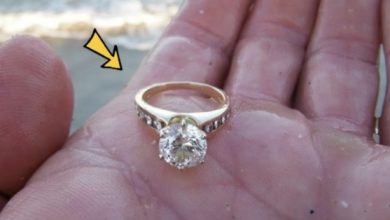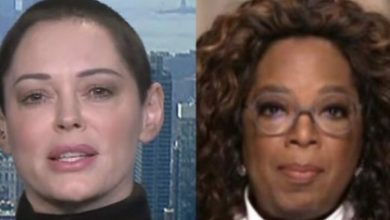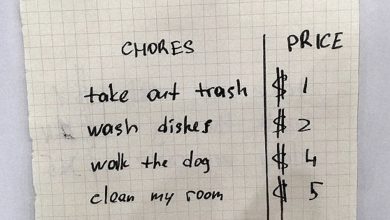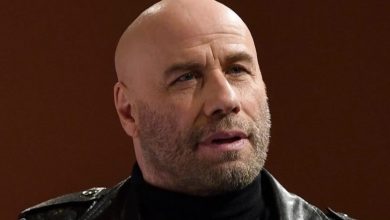The Quiet Message Between Old Allies That Exposed a Money Laundering Scheme
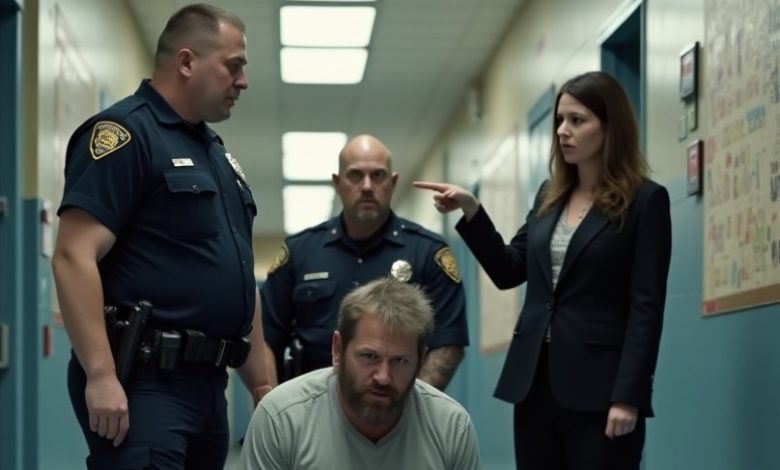
My son-in-law took my daughter to court. He wanted a divorce and every last thing they owned together. When the judge looked my way and asked if I had proof, I only answered, “No, ma’am.” The room went quiet. The judge met my eyes, and she understood exactly what I meant.
My daughter, Emily, sat across from me at our kitchen table, sunlight pouring in through the window, but her face was shadowed. She looked thin and hollowed out by pain. Her shoulders sagged like someone carrying a weight that never lifted. “He wants everything, Dad,” she said in a small voice that had been used up by crying. She pushed a thick folder toward me. “Read this. His lawyer says I’m unfit because I went to therapy after Mom died. They say I spend money carelessly because I bought business-class tickets to come see you. They’re twisting every little thing.”
I thumbed through the papers. Each sheet felt like a blade meant to cut deeper. Julian Croft — charming, smooth, the man I had never trusted — was showing his true nature. Bits of him I had seen years before came back to me now: the slick smile, eyes that measured people for advantage, more interested in what a name could get him than who that name belonged to. I had ignored those signs. I had set aside the part of me that kept warnings. My daughter loved him, and like every father, I wanted her happy. That choice had cost her dearly.
A familiar kind of anger rose up inside me, slow and cold. It was the focused anger of someone who had spent decades learning to read danger and act. I put my hand over Emily’s. “Emily,” I said softly, keeping my voice steady. “Breathe. Don’t speak to Julian. Do exactly what your lawyer tells you. No more, no less. Do you trust me?”
She blinked through tears and nodded. “Yes, Dad. I trust you.”
“Good. Go home, hold Noah close, and leave everything else to me.”
After she left, the house was quiet in a way that felt heavy. I wasn’t just Arthur Vance, the retired cultural attaché. For as long as I could remember, I had worn other faces. I locked the study door and sat at a small laptop. I did not use the home wi-fi. I took a different path online, the kind I had used long before retirement. In the dark of the screen I sent three short messages to a contact list I kept labeled “Book Club.”
One message asked for a full financial check on Julian Croft, focusing on overseas money movement. Another asked for a map of Julian’s business and social ties, to find weak points. The third went to an old friend — Alex — with a blunt request: run the name Julian Croft and tell me what the off-record files show. I closed the laptop and waited.
I did not plan to fight Julian in court by his rules. I planned to remove the floor beneath him.
Julian shared a dangerous trait with many men who believe their own cleverness: he thought he was smarter than everyone else. He’d married Emily for the name, the doors it opened, and the life it promised. To him I was an out-of-touch academic who liked poetry and could be pushed aside. He never bothered to look closely at the blank spaces in my official record — the long gaps in a résumé that said only “cultural attaché” and left out the rest.
Two days later, fragments began to come back to me. Names of offshore accounts. Hints of shell companies. Then, at three in the morning, Alex messaged. “Are you sure about this, Artie? That name touches things you don’t want to touch.”
I typed back: “It’s choking my daughter. Pull.”
His answer came with a warning: “Look up Sergei Volkov. Careful.”
I searched. The name fit into a pattern I had hoped not to find. Volkov wasn’t just another rich man; he was deep in the kind of circles that bring trouble. Julian’s financial trail ran like a thin line into those circles, and it showed a pattern of laundering money through flashy real estate projects. The sight of it chilled me. This was not about a greedy husband; this was a conduit for dirty money moving into places it had no right to be.
I sat back, anger mixed with cold clarity. What had been my family’s private disaster was now tied to something far bigger. Julian was not merely a selfish man. He was part of a dangerous puzzle that reached beyond divorce papers. The stakes were different now. I had proof that could ruin him completely. But I could not simply walk into court and lay it on the table. The way I had found that proof would expose people who had helped me, people whose work saved lives. To bring that evidence into public view would burn those connections and put others at risk.
I had a weapon I could not use.
There was only one person in the world who could read the language I needed to speak in the open, the one woman who could understand the kind of silence that carried meaning: Evelyn Reed.
Evie and I hadn’t seen each other in years, but some bonds do not break. We had been partners in darker days. We had saved each other more than once in places where mistakes meant more than a headline. She had been my analyst, the brain behind my moves. We had learned to listen to pauses and to read what people didn’t say. I pulled the divorce docket and learned the name of the judge presiding over the case. Evelyn Reed. My chest tightened at the coincidence, and then at the opportunity it offered.
A good plan needs backups. I packed what I could without writing it down: offshore numbers, transaction charts, a few shaky photos of Julian meeting men who should not be in his life. I sent the package to an investigative reporter I trusted, with instructions: if I did not signal within 24 hours, publish everything. It was a safety valve. I had to make sure someone outside the courtroom would act if I could not.
The hearing felt like a stage set for cruelty. Julian’s lawyer, Marcus Thorne, wore a smile like a blade. He picked apart small things, turning them into evidence of moral failure. “Mrs. Croft,” he said with glib pity on his face, “did you spend more than five thousand dollars at a boutique last month?”
“It was for my father’s birthday and for Noah,” Emily answered, voice shaking.
“Five thousand on gifts while your husband works to secure a future? Would you call that responsible?” He leaned in, making the court see extravagance rather than love.
He pressed at every bill, every trip, every tear. He suggested therapy meant a weak mind. He wanted to make her look careless and unstable. Julian sat there with the face of calm concern.
Then the judge turned. Her gaze slid over the courtroom and landed on me. “Mr. Vance,” she said, “your daughter suggests you have information about Mr. Croft’s finances. Do you have evidence to show this court?”
That was the moment.
I stood up. The room felt heavy with all the eyes in it. I made my voice low and chose my words very carefully. I did not explain. I did not accuse. I said two simple words that held a weight I could not say aloud.
“No, ma’am.”
For a heartbeat, confusion rippled. Julian’s lawyer smirked as if tasting victory. Emily crouched in her chair like someone betrayed by the world. Julian’s smug smile nearly broke into laughter. But the judge’s face was unreadable for only a moment. Then she shifted, the look in her eyes one I knew well — the calculation of someone who understood the gravity beneath the surface.
She called time. “This line of questioning is speculative,” she said, her voice firm. “We will recess for twenty-four hours so I can review the financial disclosures filed here.” Her gavel fell. The room stirred, people stood, papers shuffled. Julian whispered to his lawyer, angry and confused. “What was that?” he hissed. “How can she…?”
I walked by Emily and squeezed her shoulder. No words. Just a look that said, Trust me.
Those twenty-four hours did to Julian what years of lawyering could not. At nine the next morning, Judge Reed made a quiet call to a friend at the Department of Justice — a call that sounded like concern but was crafted to put the right people on notice. At the same time, my dead man’s switch had tripped. The reporter’s inbox held a package. The Treasury team that deals with international sanctions opened a file.
By noon, men with badges were entering Julian’s offices. Phones began to ring unanswered. Accounts were frozen. It was not a judge stripping him of property; it was the state seizing assets tied to criminal activity. Julian was arrested on charges that had nothing to do with divorce papers. Money laundering. Conspiracy. Violations of emergency economic powers. Suddenly his world of sleek suits and confident words tilted. The fate of the divorce turned from a fight over wallets to a fight for freedom.
With federal charges looming, the divorce lost its teeth. The court granted Emily a swift divorce and awarded her the home and a fair share of the non-criminal assets. Julian was taken away. The man who had smiled and plotted in court now was led out in handcuffs.
Months later I met Evie in a small café in Georgetown. She had stepped away after the hearing. The sunlight fell across the table, and the world of danger and coded messages felt far away. “You took a big risk, Artie,” she said, stirring her tea.
“If you hadn’t understood…” I began.
“But I did,” she said simply. A small smile touched her mouth. “We learned to read silence. It’s a hard skill to lose. Julian thought he played chess. You played poker, and I saw your ace.”
I sipped my coffee. The taste was bitter, but steadying. “We chose our words,” I said. “You act, I trust. It’s how we did things.”
In the end, the best result was not that Julian fell, though that was satisfying. The true win was that my daughter and my grandchild were safe. We had not used force or law alone. We had used a language of experience, a trust that had been built in harder times. Evelyn Reed and I had spoken in a way only we could understand, and that small, shared history had saved Emily from ruin.
We sat a long time, two old colleagues in a quiet moment, watching the sun move across the table. The battle had been messy and risky, but the outcome was simple: my daughter was free, her child safe, and Julian gone from our lives. That was enough.
If anyone asks how it happened, you can say it was luck. You can say the system worked. But for those of us who know the old ways, it came down to a single, careful choice of words, backed by a network of people who would move when the signal came. Trust, timing, and the courage to act when something is choking the people you love. That is all we needed.

